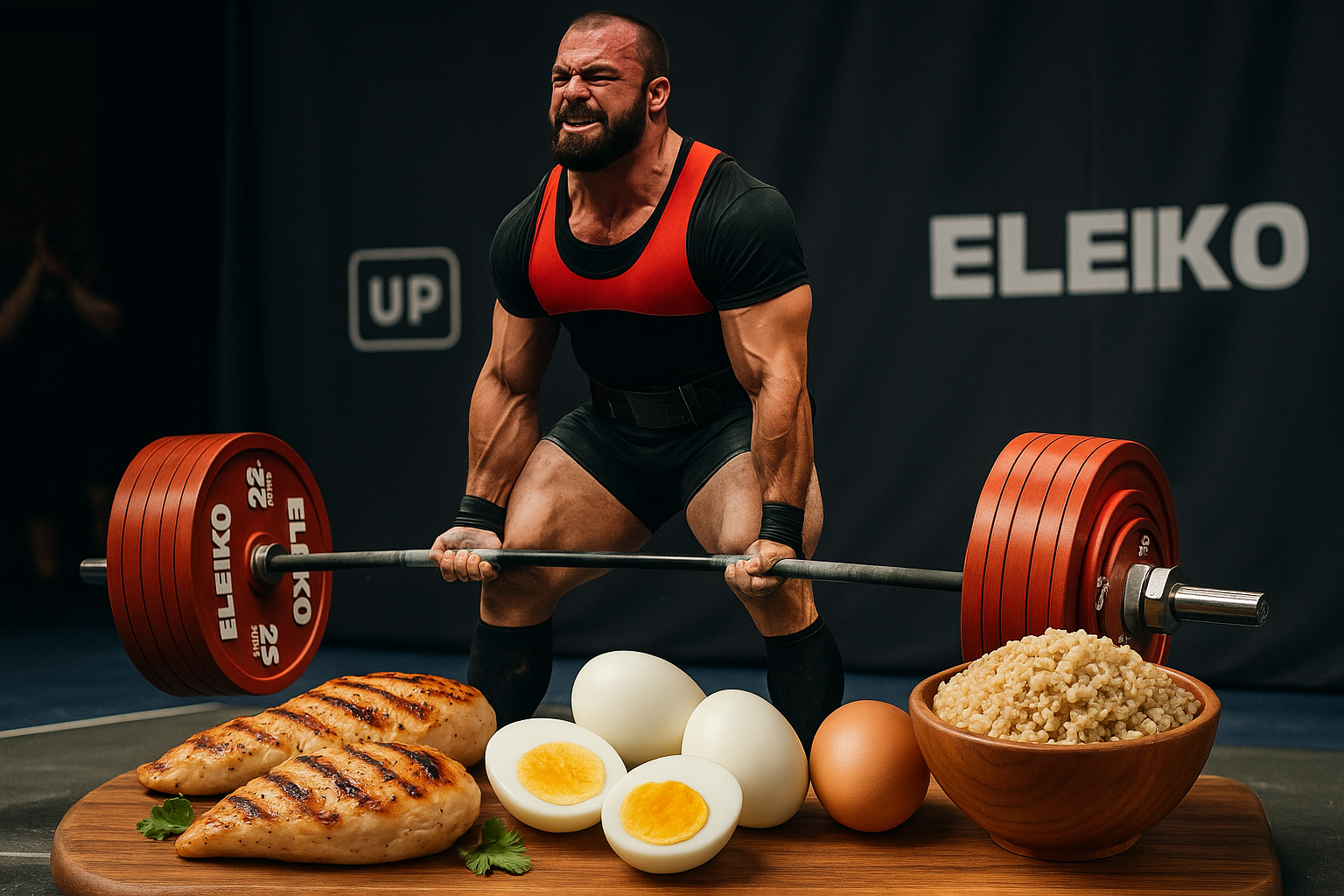Powerlifting demands more than just moving heavy weights—it requires a strategic approach to nutrition that fuels maximum strength development. Unlike bodybuilding or general fitness, powerlifting nutrition focuses primarily on supporting neural adaptation, muscle recovery, and sustained energy for high-intensity training sessions. The goal isn’t necessarily to look lean; it’s to be as strong as possible within your weight class or overall strength potential.
Understanding Powerlifting’s Unique Nutritional Demands

Powerlifting places specific demands on your body that differ significantly from other sports. The explosive nature of maximum effort lifts, combined with the heavy neural load and extended recovery periods, requires a nutrition strategy that prioritizes energy availability, protein synthesis, and micronutrient density. Your body needs consistent fuel to adapt to progressively heavier loads while maintaining optimal hormone production and recovery capacity.
The intermittent but intense nature of powerlifting training means your nutrition strategy should account for both training days and recovery days. Unlike endurance sports that require constant carbohydrate replenishment, powerlifting benefits from strategic nutrient timing that supports strength expression and muscular adaptation over time.
Caloric Requirements: Fueling Strength Without Excess
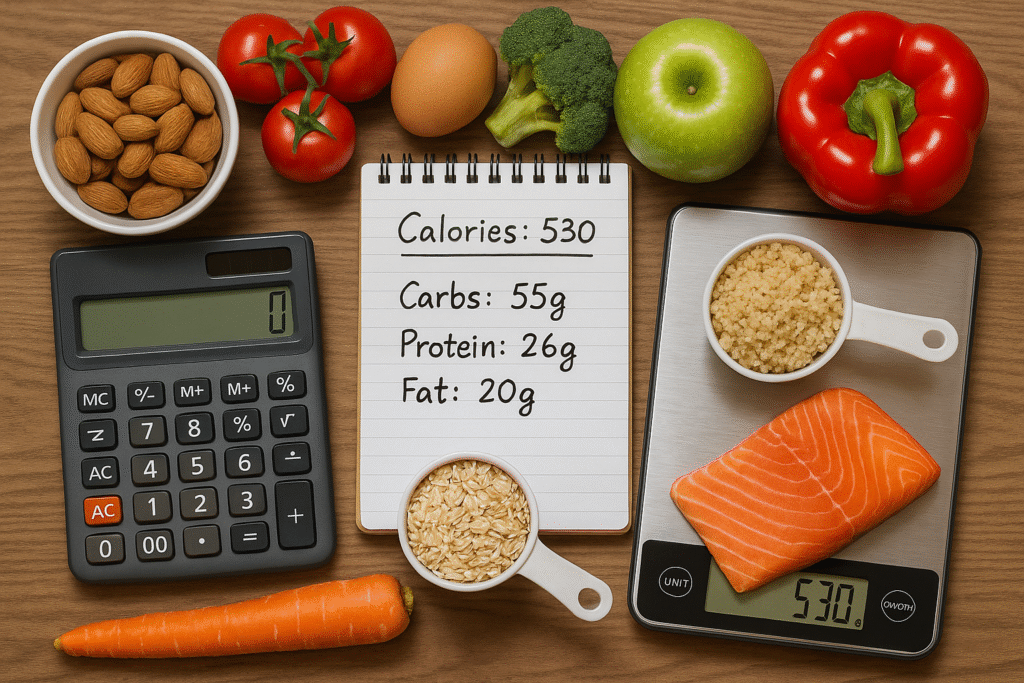
Determining your caloric needs for powerlifting requires balancing several factors: your current body weight, training volume, strength goals, and whether you’re competing in a weight class. Most powerlifters perform best in a slight caloric surplus of 200-500 calories above maintenance, providing enough energy for recovery and strength gains without excessive fat accumulation.
For competitive powerlifters in weight classes, the approach becomes more nuanced. You’ll need to periodize your caloric intake around competition schedules, potentially maintaining weight for extended periods while still supporting strength development. Non-competitive lifters have more flexibility and can focus purely on optimizing strength gains through adequate caloric intake.
Calculate your baseline needs using your body weight, activity level, and training frequency. A 200-pound male powerlifter training four times per week typically requires 3,200-3,800 calories daily, while a 140-pound female counterpart might need 2,400-2,800 calories. These numbers serve as starting points that should be adjusted based on progress, energy levels, and recovery quality.
Protein: The Foundation of Strength Development
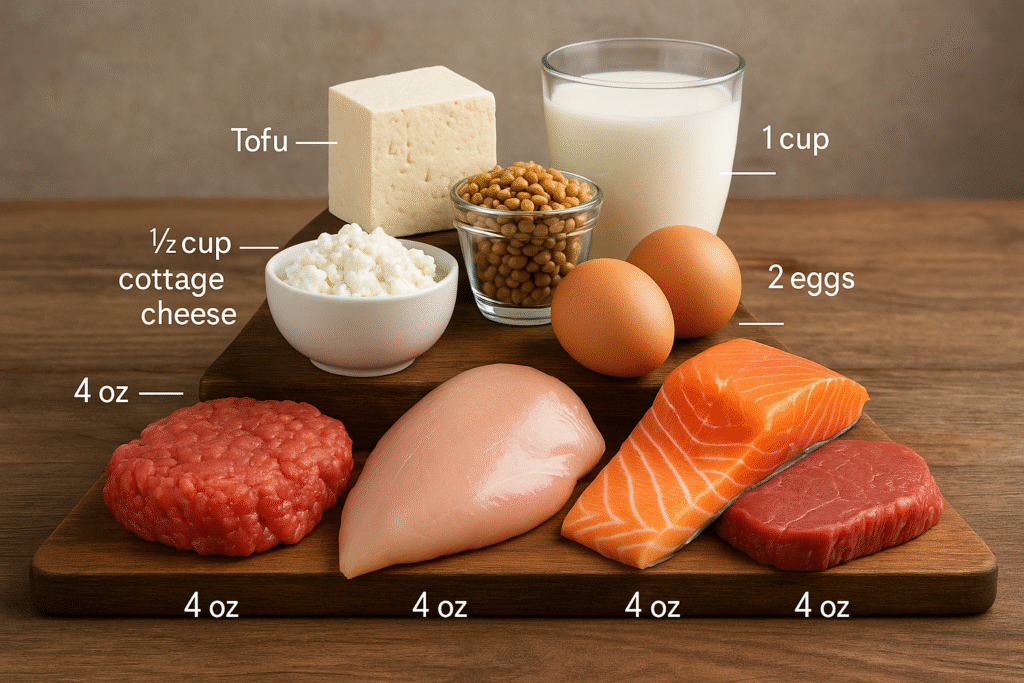
Protein intake for powerlifters should be robust and consistent, supporting both muscle protein synthesis and recovery from high-intensity training sessions. Research suggests powerlifters benefit from 1.2-1.8 grams of protein per pound of body weight, with the higher end being particularly beneficial during intense training phases or when in a caloric deficit.
Quality matters as much as quantity. Complete proteins containing all essential amino acids should form the backbone of your protein intake. Lean meats, fish, eggs, dairy products, and high-quality protein supplements provide the amino acid profiles most conducive to strength development. Plant-based lifters can achieve similar results by combining complementary protein sources and potentially increasing total protein intake slightly.
Timing your protein intake throughout the day ensures consistent amino acid availability. Aim for 25-40 grams of high-quality protein every 3-4 hours, with particular attention to post-workout nutrition. A post-training meal containing 30-50 grams of protein within two hours of training optimizes the muscle protein synthesis response crucial for strength adaptations.
Carbohydrates: Strategic Fuel for Maximum Performance
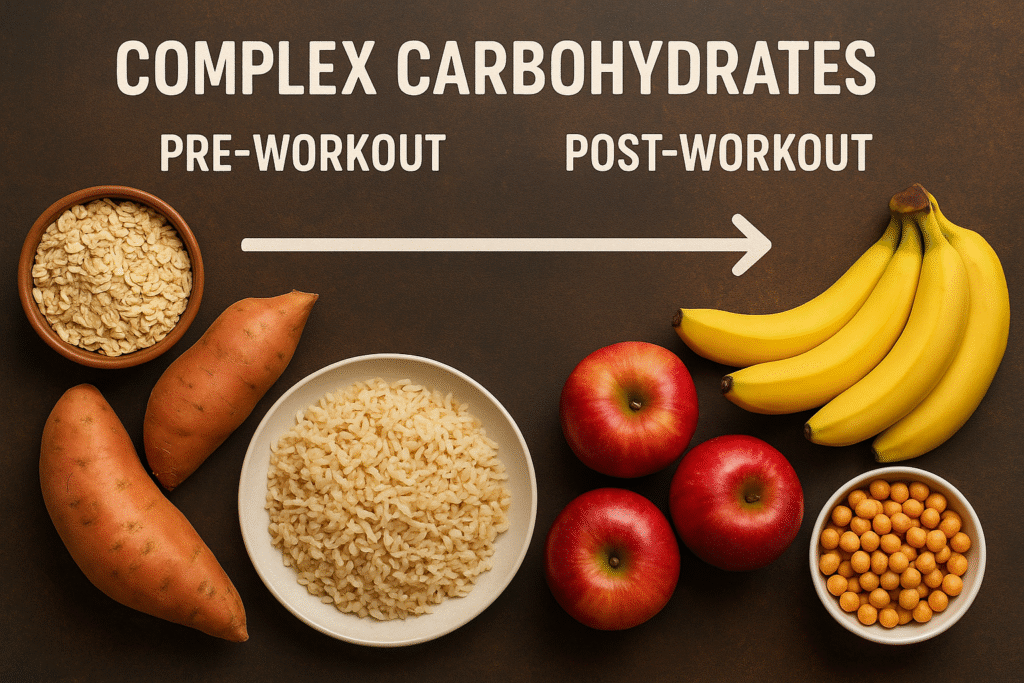
Carbohydrates serve as the primary fuel source for high-intensity powerlifting sessions, making strategic carbohydrate intake essential for consistent performance. Unlike endurance athletes who require constant carbohydrate availability, powerlifters can benefit from targeted carbohydrate timing around training sessions while maintaining moderate intake on rest days.
Complex carbohydrates should comprise the majority of your carbohydrate intake, providing sustained energy release and supporting glycogen replenishment. Oats, rice, potatoes, quinoa, and other whole grain sources offer steady energy without dramatic blood sugar fluctuations that can affect training performance.
Pre-workout carbohydrate intake should occur 1-3 hours before training, providing 30-60 grams of easily digestible carbohydrates. Post-workout, consume 0.5-1 gram of carbohydrates per pound of body weight within two hours of training to optimize glycogen replenishment and support recovery processes.
Fats: Supporting Hormone Production and Recovery
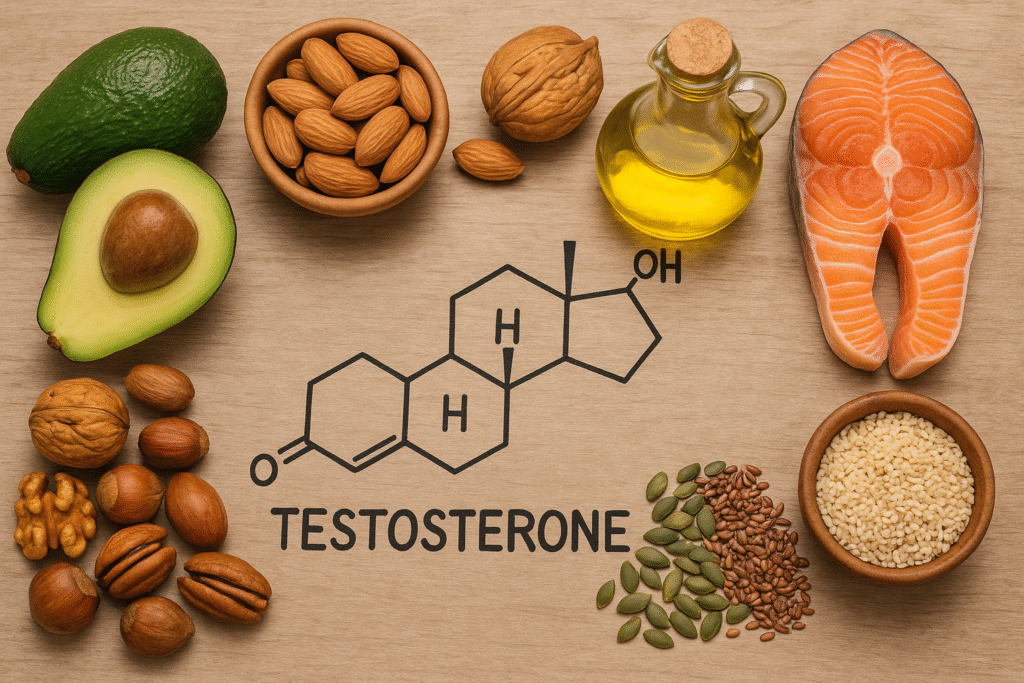
Dietary fats play a crucial role in powerlifting nutrition, particularly in supporting testosterone production and other anabolic hormones essential for strength development. Powerlifters should aim for 25-35% of total calories from fat sources, with emphasis on monounsaturated and omega-3 fatty acids.
Monounsaturated fats from sources like olive oil, avocados, and nuts support cardiovascular health and provide sustained energy. Omega-3 fatty acids from fatty fish, walnuts, and flaxseeds offer anti-inflammatory benefits that can enhance recovery between training sessions. Saturated fats, while often maligned, serve important functions in hormone production when consumed in moderation as part of a balanced diet.
Avoid trans fats and minimize highly processed fat sources that can promote inflammation and interfere with recovery. Instead, focus on whole food fat sources that provide additional nutrients beyond just fatty acids, such as the vitamin E in nuts or the antioxidants in olive oil.
Micronutrients: The Overlooked Performance Enhancers
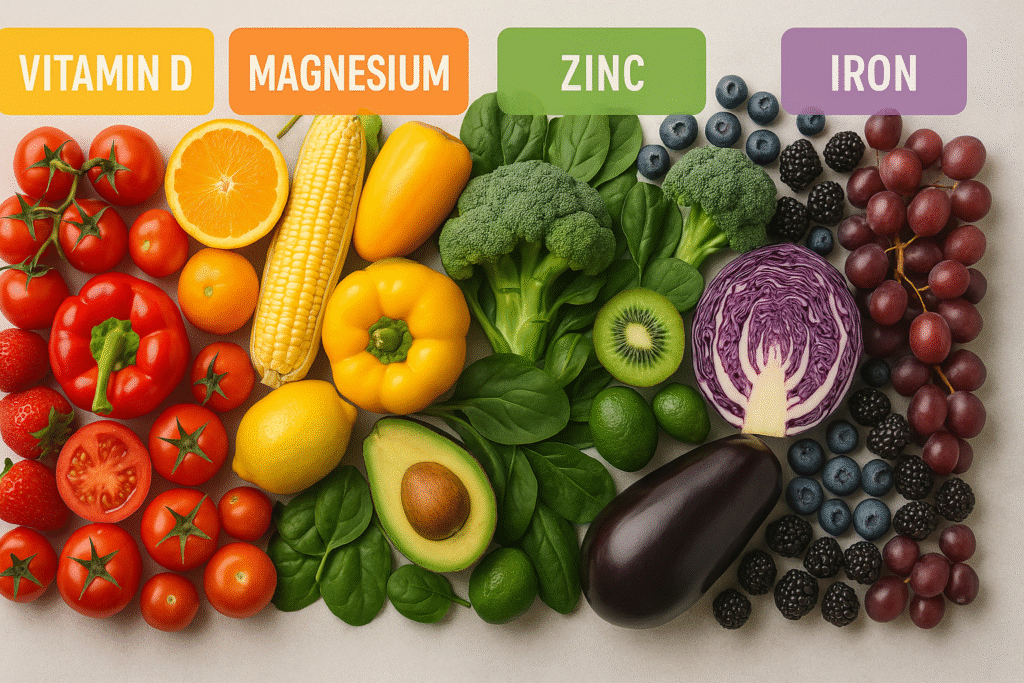
Micronutrients often receive insufficient attention in powerlifting nutrition discussions, yet they play vital roles in energy metabolism, muscle contraction, and recovery processes. Certain minerals and vitamins are particularly important for strength athletes and may require special attention or supplementation.
Magnesium supports muscle and nerve function, making it crucial for proper muscle contraction during heavy lifts. Zinc plays roles in protein synthesis and testosterone production, both essential for strength development. Iron supports oxygen transport and energy metabolism, while vitamin D influences muscle function and bone health.
B-vitamins facilitate energy metabolism and nervous system function, both critical for powerlifting performance. Vitamin C and E provide antioxidant protection against exercise-induced oxidative stress. Rather than relying solely on supplements, prioritize nutrient-dense whole foods that provide these micronutrients in bioavailable forms alongside other beneficial compounds.
Hydration: The Foundation of Performance
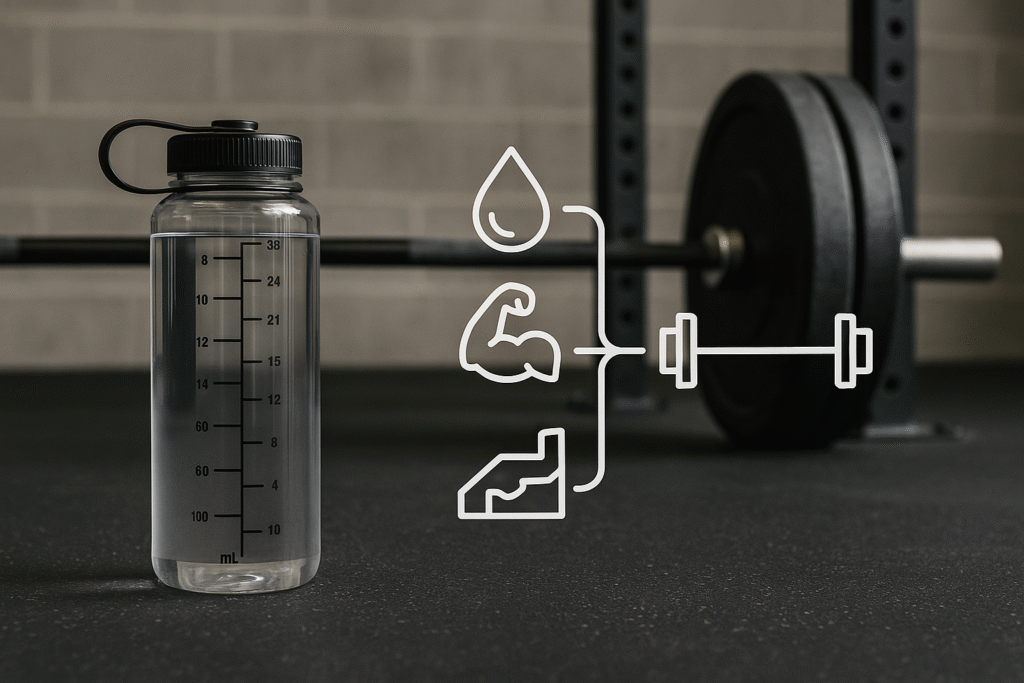
Proper hydration directly impacts strength performance, muscle function, and recovery capacity. Even mild dehydration can significantly reduce force production and increase perceived exertion during training sessions. Powerlifters should maintain consistent hydration throughout the day rather than trying to compensate immediately before training.
Aim for at least half your body weight in ounces of water daily, increasing this amount on training days and in hot climates. Monitor your urine color as a simple hydration assessment tool—pale yellow indicates adequate hydration, while dark yellow suggests the need for increased fluid intake.
Electrolyte balance becomes important during longer training sessions or when sweating heavily. Sodium, potassium, and magnesium losses through sweat should be replaced through food sources or electrolyte supplements, particularly during intense training phases or competition preparation.
Pre and Post-Workout Nutrition Strategies
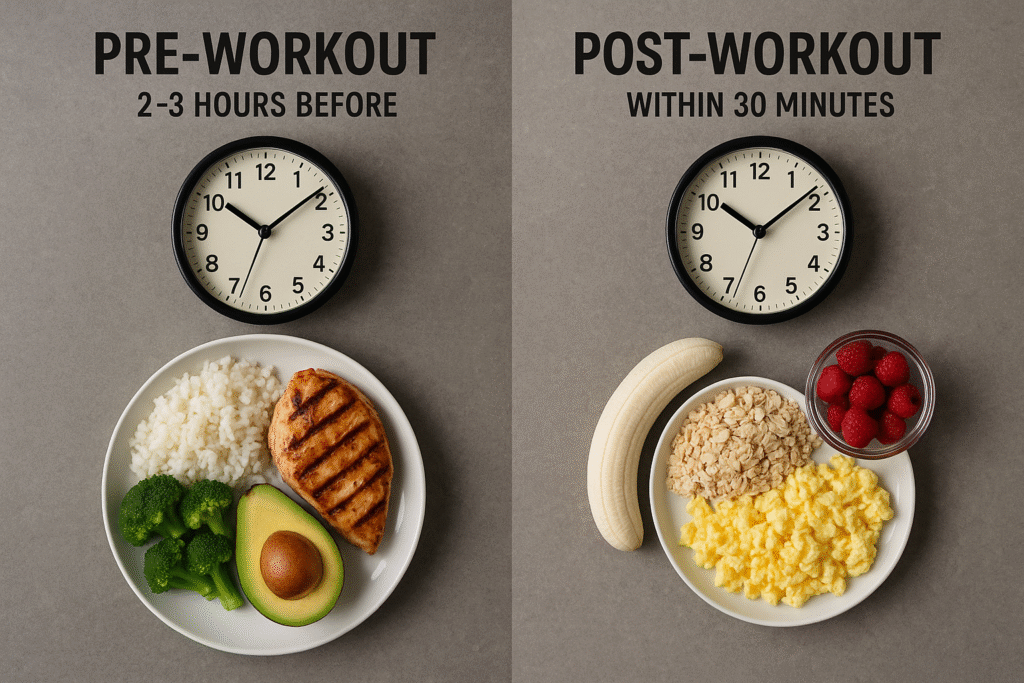
Strategic nutrient timing around training sessions can significantly impact performance and recovery. Pre-workout nutrition should provide readily available energy while avoiding digestive discomfort during heavy lifting. A meal containing 30-50 grams of carbohydrates and 20-30 grams of protein consumed 2-3 hours before training typically works well for most lifters.
For those training early in the morning or preferring to train fasted, a smaller pre-workout snack containing 15-25 grams of easily digestible carbohydrates 30-60 minutes before training can provide sufficient energy without causing digestive issues. Caffeine consumption 30-45 minutes before training can enhance focus and power output for many lifters.
Post-workout nutrition focuses on initiating recovery processes and replenishing energy stores. A combination of high-quality protein and carbohydrates consumed within two hours of training optimizes muscle protein synthesis and glycogen replenishment. The exact ratio depends on training intensity and individual preferences, but a 3:1 or 4:1 carbohydrate-to-protein ratio often works well.
Managing Weight Classes and Body Composition
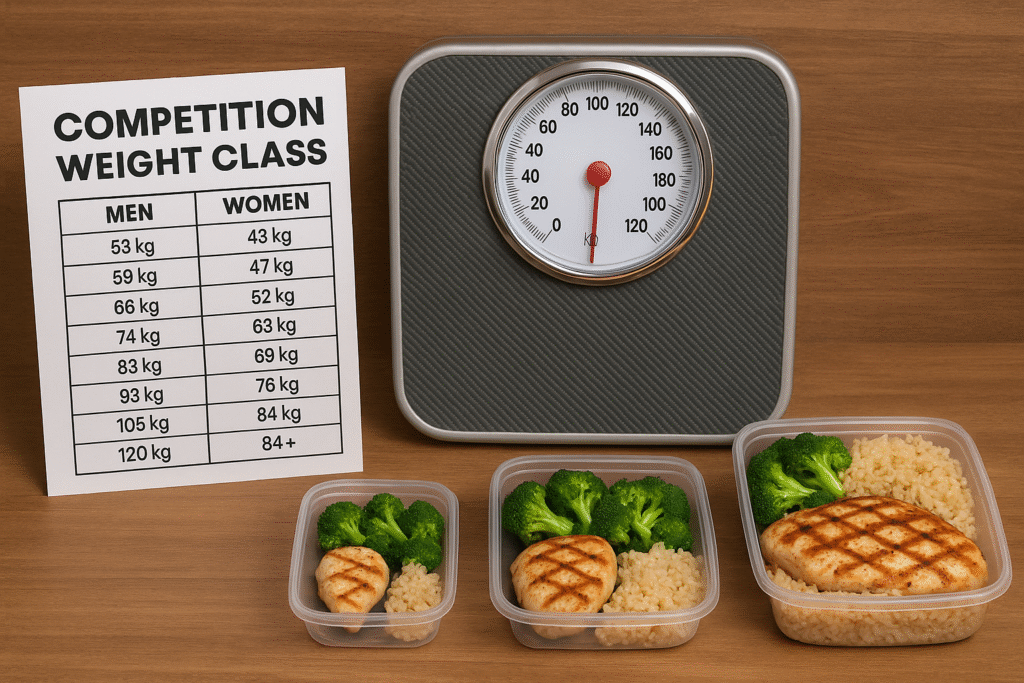
Competitive powerlifters must balance strength development with weight class requirements, creating unique nutritional challenges. The key is maintaining strength while achieving the desired body weight, often requiring precise caloric and macronutrient manipulation around competition schedules.
During off-season periods, focus on strength development through adequate caloric intake and progressive overload. As competition approaches, gradually reduce calories if weight loss is necessary, prioritizing protein intake and training intensity to preserve strength levels. Avoid dramatic weight cuts that can compromise performance and health.
For powerlifters not concerned with weight classes, body composition goals should align with performance objectives. Some lifters perform best at higher body fat percentages that support maximum strength expression, while others prefer leaner physiques that may require more careful nutritional management to maintain strength levels.
Supplementation for Powerlifters
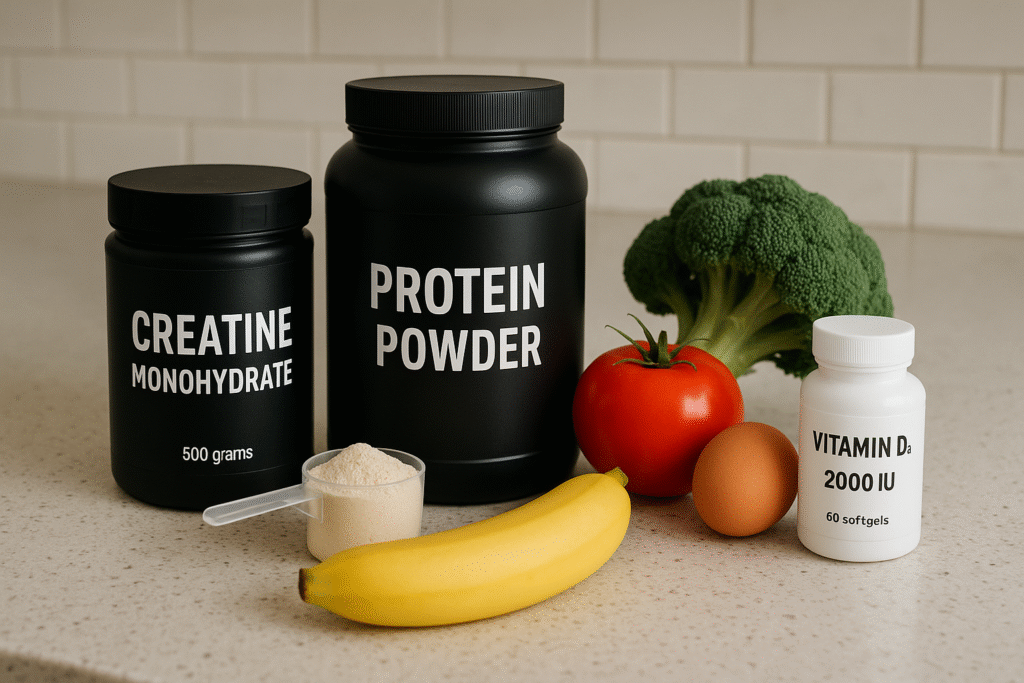
While whole foods should form the foundation of powerlifting nutrition, certain supplements can provide additional benefits when used strategically. Creatine monohydrate stands out as the most researched and effective supplement for powerlifters, supporting ATP regeneration during high-intensity efforts and potentially enhancing training adaptations.
Protein powder serves as a convenient tool for meeting protein targets, particularly post-workout when whole food meals may be impractical. Whey protein offers rapid absorption and complete amino acid profiles, while casein provides sustained amino acid release. Plant-based options can effectively serve similar purposes for those avoiding dairy products.
Vitamin D supplementation may benefit lifters with limited sun exposure or those living in northern climates, as deficiency can impact muscle function and bone health. Other supplements like caffeine, beta-alanine, or citrulline may provide performance benefits for some individuals, but they should complement rather than replace a well-designed nutrition foundation.
Meal Planning and Preparation Strategies
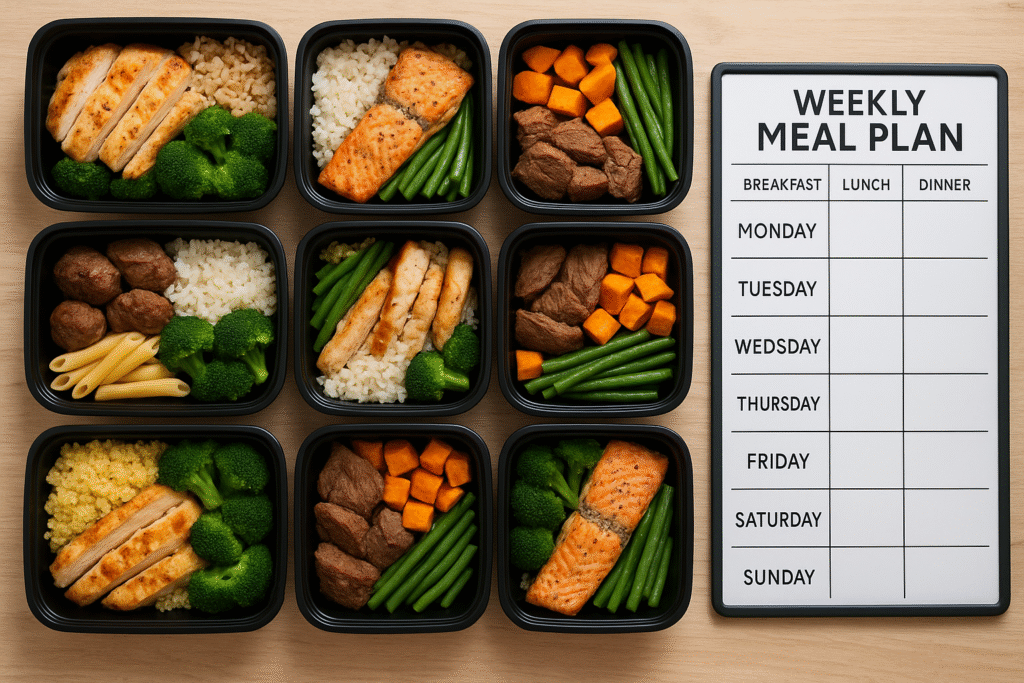
Successful powerlifting nutrition requires planning and consistency. Meal preparation strategies can ensure adequate nutrition while accommodating busy training schedules and work commitments. Batch cooking proteins, preparing complex carbohydrates in advance, and pre-cutting vegetables can streamline daily nutrition execution.
Design meals around your training schedule, ensuring adequate pre and post-workout nutrition while maintaining consistent meal timing throughout the week. Having backup options like protein powder, quick-cooking grains, and frozen vegetables can prevent poor food choices when time is limited.
Consider your individual preferences, cooking skills, and available time when developing meal planning strategies. Some lifters thrive on detailed meal prep, while others prefer flexible guidelines that allow for spontaneous food choices within their nutritional framework.
Common Nutritional Mistakes in Powerlifting
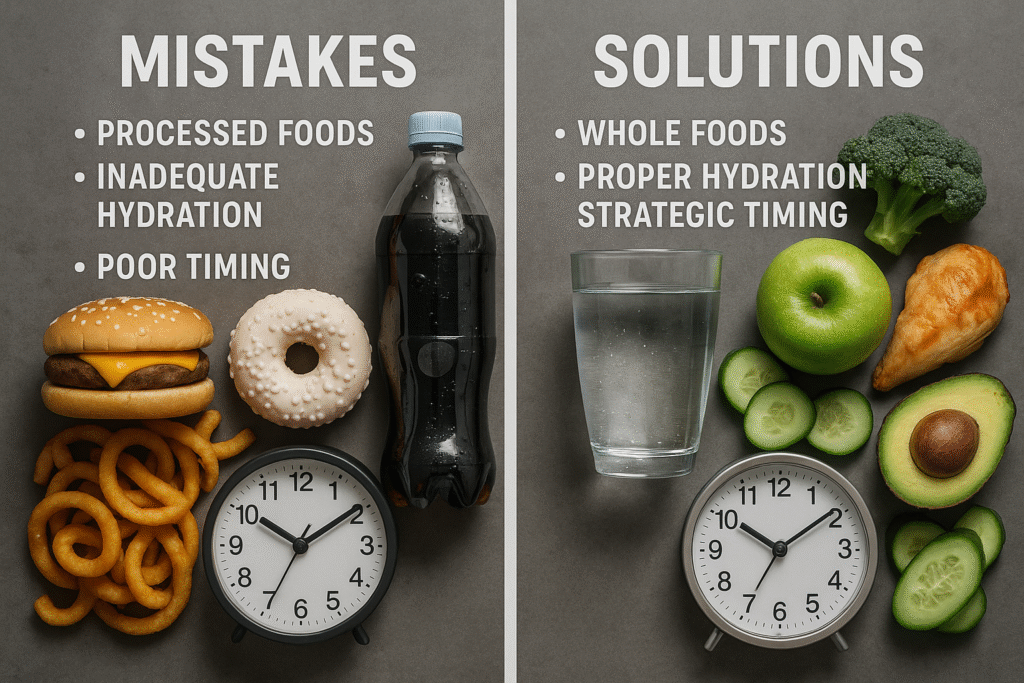
Many powerlifters make nutritional errors that can limit their strength development potential. Under-eating represents one of the most common mistakes, with lifters restricting calories too severely while expecting strength gains. Adequate energy intake is essential for supporting heavy training loads and facilitating adaptations.
Inconsistent meal timing and poor pre/post-workout nutrition can impact training quality and recovery. Skipping meals or relying too heavily on processed foods can lead to energy fluctuations and inadequate micronutrient intake. These issues are particularly problematic during intense training phases when nutritional demands are highest.
Over-reliance on supplements while neglecting whole food nutrition represents another common pitfall. Supplements should enhance rather than replace a well-designed nutrition plan based on nutrient-dense whole foods that provide the foundation for optimal powerlifting performance.
Adapting Your Approach Over Time
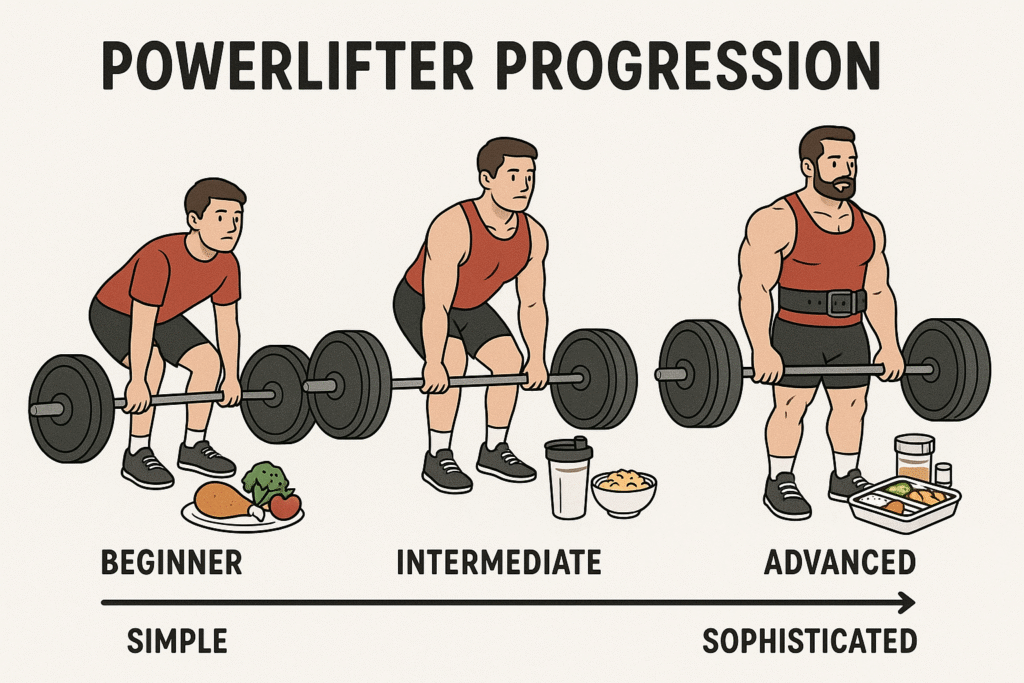
Nutritional needs evolve as you progress in powerlifting experience and strength levels. Beginner lifters often respond well to simple approaches focusing on adequate calories and protein intake, while advanced lifters may benefit from more sophisticated strategies including nutrient timing, supplementation, and body composition management.
Monitor your progress regularly through training logs, body weight tracking, and subjective measures like energy levels and recovery quality. Adjust your nutritional approach based on these indicators rather than rigidly adhering to initial plans that may no longer serve your current needs and goals.
Be prepared to modify your approach during different training phases, competition preparation periods, and life circumstances. Flexibility within a structured framework allows for long-term adherence while supporting continued strength development throughout your powerlifting journey.
The most effective powerlifting nutrition plan is one that you can consistently follow while supporting your strength goals, recovery needs, and overall health. Focus on building sustainable habits around whole food nutrition, strategic supplementation, and proper hydration that will serve you well throughout your powerlifting career.
FAQs
Q: How much protein do I really need as a powerlifter?
A: Powerlifters should aim for 1.2-1.8 grams of protein per pound of body weight daily. This higher range supports muscle protein synthesis, recovery from intense training, and strength adaptations. A 180-pound powerlifter would need approximately 216-324 grams of protein daily. Focus on complete protein sources like lean meats, fish, eggs, dairy, and high-quality protein supplements to meet these targets consistently.
Q: Should I eat carbs before training or avoid them?
A: Carbohydrates are beneficial before powerlifting sessions as they provide readily available energy for high-intensity efforts. Consume 30-60 grams of easily digestible carbohydrates 1-3 hours before training. Good options include oatmeal with banana, rice with a small amount of honey, or a sports drink. Avoid high-fiber or high-fat foods immediately before training as they can cause digestive discomfort during heavy lifts.
Q: Can I build strength while cutting weight for a competition?
A: It’s challenging but possible to maintain or even build strength during moderate weight cuts. Keep protein intake high (1.4-1.8g per pound), maintain training intensity, prioritize sleep, and create only a modest caloric deficit (300-500 calories below maintenance). Dramatic weight cuts typically compromise strength performance, so plan competition weight management well in advance rather than attempting rapid cuts.
Q: Do I need to eat immediately after training?
A: While the post-workout “anabolic window” isn’t as narrow as once believed, consuming protein and carbohydrates within 2 hours of training optimizes recovery. Aim for 30-50 grams of high-quality protein and 0.5-1 gram of carbohydrates per pound of body weight. If you’ve eaten a substantial meal 2-3 hours before training, the urgency for immediate post-workout nutrition decreases.
Q: Is creatine worth taking for powerlifting?
A: Yes, creatine monohydrate is one of the most researched and effective supplements for powerlifters. It enhances ATP regeneration during high-intensity efforts, potentially improving performance on heavy singles and low-rep sets. Take 3-5 grams daily, timing is not critical. Some people experience slight weight gain from increased water retention, which is normal and may actually benefit powerlifting performance.
Q: How much water should I drink on training days?
A: Aim for at least half your body weight in ounces of water daily, increasing to 75% of your body weight in ounces on training days. A 200-pound lifter should consume 100-150 ounces of water on training days. Monitor urine color as a hydration indicator – pale yellow suggests adequate hydration. Avoid overhydrating immediately before training as it can cause discomfort during heavy lifts.
